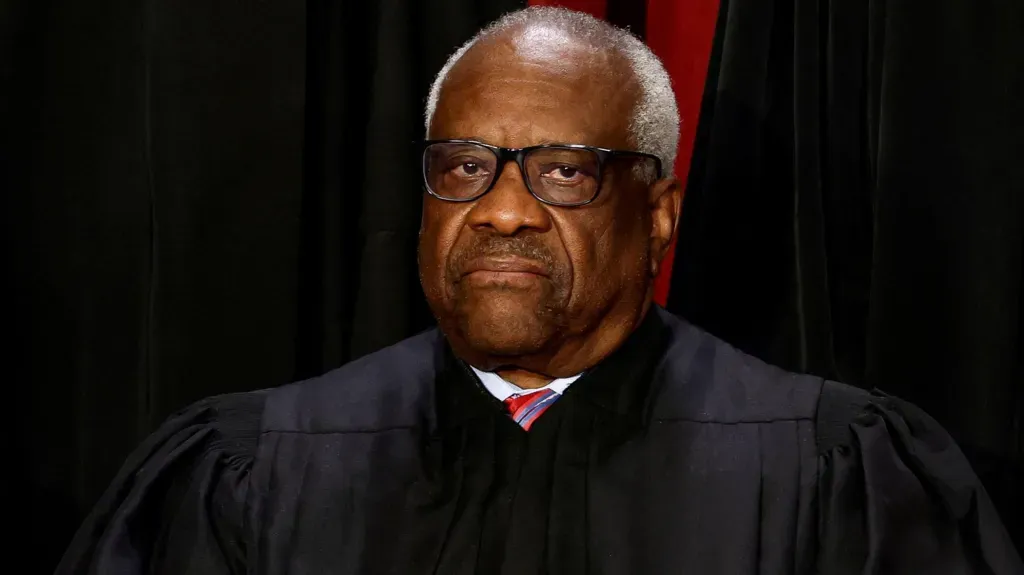Introduction
The integrity of the United States Supreme Court is once again under scrutiny as Justice Clarence Thomas faces allegations of failing to disclose private jet travel provided by a billionaire Republican donor. The controversy has drawn significant attention and raises questions about transparency and ethics within the highest court in the land. This detailed examination will delve into the specifics of the allegations, the responses from the involved parties, and the broader implications for the Supreme Court.
Allegations of Undisclosed Private Jet Travel
The Accusations
Senator Ron Wyden, Chairman of the Senate Finance Committee, has accused Justice Clarence Thomas of not reporting two private jet trips provided by Harlan Crow, a billionaire Republican donor. According to Wyden, Thomas and his wife, Virginia, flew roundtrip from Hawaii to New Zealand on Crow’s private jet in 2010. This trip was allegedly not disclosed in Thomas’s financial disclosures, raising questions about adherence to transparency regulations.
Wyden’s accusations are detailed in a letter addressed to Mr. Crow’s lawyer. In the letter, Wyden argues that Crow’s provision of such lavish gifts to a public official could be viewed as an attempt to influence or curry favor with Justice Thomas. He claims that Crow may have used these gifts as a means to reduce his tax liability, potentially benefiting from the tax deductions related to the gifts.
Responses from Harlan Crow and His Representatives
Harlan Crow’s spokesman has vehemently denied the allegations made by Senator Wyden. According to the spokesperson, Wyden’s inquiries lack a legal foundation and are perceived as harassment towards a private citizen. The representative for Mr. Crow asserted that Crow has always adhered to applicable tax laws and denied any improper conduct.
Michael Zona, speaking on behalf of Mr. Crow, criticized Wyden’s actions as an abuse of the committee’s powers and an attempt to advance a politically motivated agenda against the Supreme Court. Zona’s response reflects a broader contention that the scrutiny of Thomas’s travel might be part of a politically charged effort to undermine the credibility of the Court.
Justice Thomas’s Perspective
Justice Clarence Thomas has yet to publicly address the specific claims made by Senator Wyden. However, Thomas has previously defended his travel practices by stating that he believed such trips with close friends, who do not have cases before the Supreme Court, did not need to be reported. This defense underscores a broader debate about the ethical standards expected of Supreme Court justices and the transparency of their financial disclosures.
Historical Context of the Allegations
Previous Scrutiny of Justice Thomas
This is not the first instance of controversy surrounding Justice Thomas’s travel. His use of private jets and yachts in the past has faced scrutiny, raising questions about potential conflicts of interest. The current allegations build upon previous criticisms and highlight ongoing concerns about the ethical conduct of Supreme Court justices.
Recent Disclosure Amendments
In response to earlier criticisms, Justice Thomas amended his annual financial disclosure statement in June to include trips with Harlan Crow from 2019. These trips were to Bali and California, and the amendment was intended to address past concerns regarding transparency. Despite these updates, Senator Wyden’s letter suggests that Thomas may have used private jets provided by Crow at least 17 times over the past eight years, including a newly reported trip.
Wyden’s allegations include references to U.S. Customs and Border Protection records that supposedly document the 2010 trip from Hawaii to New Zealand. This additional evidence is cited to bolster Wyden’s claims and further challenge the accuracy of Thomas’s reported disclosures.
Implications for Supreme Court Ethics and Reforms
Impact on Court Reforms
The controversy surrounding Justice Thomas’s travel has contributed to a broader discussion about ethics and accountability within the Supreme Court. The White House has indicated that Wyden’s letter strengthens President Joe Biden’s argument for significant reforms to the Court. These reforms include proposals for establishing term limits for justices and implementing an enforceable code of conduct.
President Biden’s proposal for reform is aimed at addressing what he perceives as low ethical standards within the Court. The proposed changes would seek to introduce greater accountability and reduce potential conflicts of interest among Supreme Court justices. However, passing such reforms in Congress would likely face significant challenges and opposition.
Broader Scrutiny of Court Members
The heightened focus on Supreme Court ethics has led to increased scrutiny of other justices. For example, it was revealed last year that Justice Sonia Sotomayor did not recuse herself from cases involving Penguin Random House, which had paid her over $3 million for book deals. This disclosure has added to the debate about the ethical practices of Supreme Court members and the need for clearer guidelines.
Conclusion
The allegations against Justice Clarence Thomas regarding undisclosed private jet travel raise important questions about the transparency and ethical standards of the Supreme Court. The ongoing investigation and public scrutiny highlight the complexities of ensuring accountability among the highest judicial figures in the United States.
As the situation develops, it will be crucial to monitor the responses from the involved parties and any potential reforms that may arise from this controversy. The implications for Supreme Court ethics and transparency remain significant and will continue to be a focal point in discussions about judicial conduct and accountability.
Explore more articles on important legal and political matters in the US by visiting our dedicated section here.


